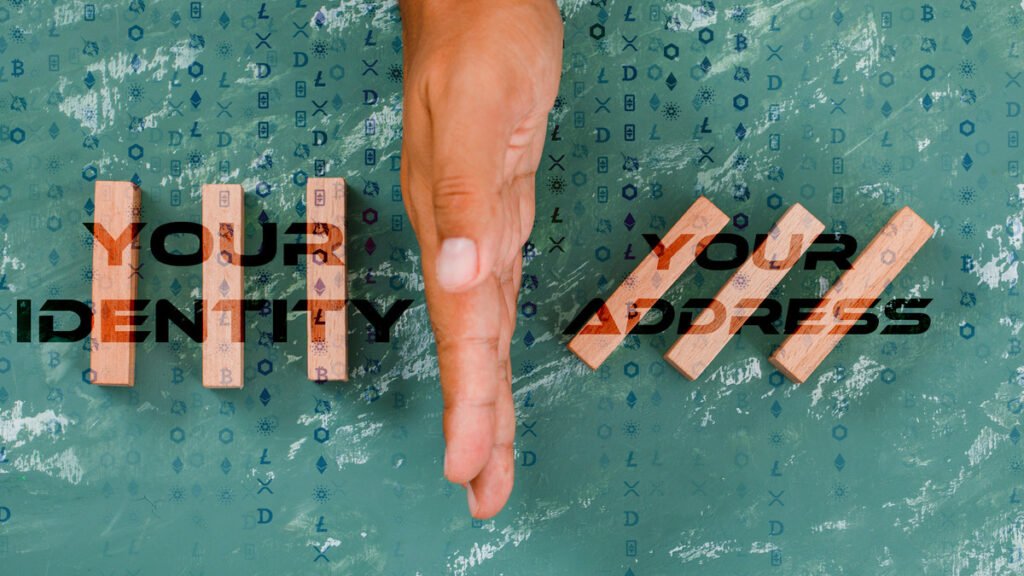Most of us believe that Bitcoin or any crypto technology is anonymous but it’s not so. Rather, it is pseudo- anonymous. Hence, it is the responsibility of users to adopt good and ideal practices in order to protect their privacy from hackers.
Just putting a mask on your face doesn’t mean nobody can find out who you are? This is also applicable and true for Bitcoin. With forensic analysis, any Bitcoin address used in a transaction is very likely to be traceable. That’s why bitcoin transactions are called pseudo- anonymous.
A digital identity on one hand increases the speed of processes within an organization by allowing for a greater interoperability between departments and other institutions. But on the other hand if digital identity is stored on a centralized server, it becomes a target for hackers.
How Addresses Can Be Traced and Identity Revealed
With Bitcoin, all transactions and the wallet addresses involved are recorded on the public blockchain network, which are open and available to all. The addresses alone don’t reveal any identifiable details. However, they do provide a clue for further investigation.
Suppose your Bitcoin address is just like an email address. How hard it is to trace your actions depend largely on what you do with it or use it. For example identity can be traced if you are using a private wifi connection. Here, you generally give your ID proof, through which your identities can be matched against your IP.
Likewise, say you share your Bitcoin address publicly, perhaps on a forum. Even if it is not shared with any identifiable details, you may have used the same username somewhere else. You may have shared identifiable details in another post under that username which someone can track by looking through your privacy history. Also the email address used to sign up to the forum, which is also public. It is not difficult to connect all these dots or links.
Putting personal data on the ledger puts the privacy of the users in danger (because it will constantly be subject to hacking and data breaches). It could always be hacked (if not now, probably at some point in the future).
Anytime you share the Bitcoin wallet address, you make it possible for someone to link you to it. If you are buying something, the merchant is highly unlikely to bother tracing you and to do so is expensive enough.
It is especially important to note that because you can see all transactions that take place over the Bitcoin network, multiple Bitcoin addresses can be grouped together. Then they can be tied to the same address.
Therefore, if just one of these addresses is linked to a real world identity through one or several of the other de-anonymizing methods all of them can be.
For above reasons, Bitcoin addresses should only be used once and users must be careful not to disclose their addresses.

How to Overcome Identity Fraud and Identity Theft
Use new addresses to receive payments
- For protection of privacy one should use a new bitcoin address each time to receive a new payment.
Use Multiple Wallets
- For different purposes one can use a different wallet, through which one can isolate each of his/her transactions in such a way that it is not possible to associate them all together.
Be Careful With Public Network
- Publishing a Bitcoin address on any public space such as a website or social network is not a good idea at all when it comes to privacy. If you choose to do so, always assure whether you move any funds with this address to one of your other addresses, it will be publicly tracked by the history of your public address.
Backup Your Wallet
- A backup of your wallet can protect you against computer failures and many human errors. It can also allow you to recover your wallet after your mobile or computer was stolen if you keep your wallet encrypted.
Conclusion
Taking a bit of time on the above enlisted points matters a lot and can make a huge difference. Many improvements can be expected in the future to improve privacy, data security and identity management. For instance, some efforts are ongoing with the payment messages API to avoid tainting multiple addresses together during a payment. But at the user end identities also need to be private and secure from being stolen and which is not that much difficult, only one has to be cautious and alert.

